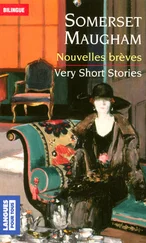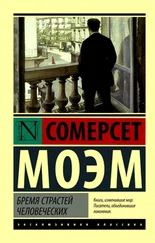| He forgot the life about him. |
Он забыл об окружающем мире. |
| He had to be called two or three times before he would come to his dinner. |
Его не могли дозваться обедать. |
| Insensibly he formed the most delightful habit in the world, the habit of reading: he did not know that thus he was providing himself with a refuge from all the distress of life; he did not know either that he was creating for himself an unreal world which would make the real world of every day a source of bitter disappointment. |
Сам того не понимая, он приобрел прекраснейшую привычку на свете - привычку читать; он и не подозревал, что нашел самое надежное убежище от всяческих зол; не знал он, правда, и того, что создает для себя вымышленный мир, рядом с которым подлинный мир может принести ему только жестокие разочарования. |
| Presently he began to read other things. |
Вскоре он стал читать и другие книги. |
| His brain was precocious. |
Ум у него был любознательный. |
| His uncle and aunt, seeing that he occupied himself and neither worried nor made a noise, ceased to trouble themselves about him. |
Увидев, что мальчик нашел себе занятие, больше не пристает к взрослым и не шумит, дядя и тетя перестали обращать на него внимание. |
| Mr. Carey had so many books that he did not know them, and as he read little he forgot the odd lots he had bought at one time and another because they were cheap. |
У мистера Кэри было столько книг, что он не мог все их упомнить, а так как читал он мало, то не знал и того, какие именно книги он привез в той или иной пачке, купленной по дешевке у букиниста. |
| Haphazard among the sermons and homilies, the travels, the lives of the Saints, the Fathers, the histories of the church, were old-fashioned novels; and these Philip at last discovered. |
Вперемежку с проповедями, нравоучениями, путешествиями, житиями святых, историей религии и писаниями отцов церкви стояли старомодные романы - их-то и открыл для себя Филип. |
| He chose them by their titles, and the first he read was The Lancashire Witches, and then he read The Admirable Crichton, and then many more. |
Он отыскивал их по заголовкам, и первое, на что он напал, были "Ланкаширские ведьмы", потом "Незаменимый Кричтон" и множество других. |
| Whenever he started a book with two solitary travellers riding along the brink of a desperate ravine he knew he was safe. |
Стоило ему, раскрыв книгу, прочесть, как два одиноких путника едут по краю бездны,- и он уже предвкушал, сколько радостей ждет его впереди. |
| The summer was come now, and the gardener, an old sailor, made him a hammock and fixed it up for him in the branches of a weeping willow. |
Настало лето, и садовник, бывший матрос, смастерил для него гамак и привязал к ветвям плакучей ивы. |
| And here for long hours he lay, hidden from anyone who might come to the vicarage, reading, reading passionately. |
Филип лежал в нем часами, укрытый от всех, кто мог ненароком зайти к священнику, и читал, читал самозабвенно. |
| Time passed and it was July; August came: on Sundays the church was crowded with strangers, and the collection at the offertory often amounted to two pounds. |
Шло время, наступил июль, а за ним и август; по воскресеньям церковь была полна приезжих, и пожертвования часто доходили до двух фунтов. |
| Neither the Vicar nor Mrs. Carey went out of the garden much during this period; for they disliked strange faces, and they looked upon the visitors from London with aversion. |
В дачный сезон ни священник, ни миссис Кэри не выходили из сада надолго: они не любили посторонних и смотрели на заезжих лондонцев с неприязнью. |
| The house opposite was taken for six weeks by a gentleman who had two little boys, and he sent in to ask if Philip would like to go and play with them; but Mrs. Carey returned a polite refusal. |
Дом напротив снял на полтора месяца какой-то господин, у которого было два мальчика; он послал спросить, не захочет ли Филип прийти поиграть с его сыновьями, но миссис Кэри ответила вежливым отказом. |
| She was afraid that Philip would be corrupted by little boys from London. |
Она боялась, что столичные мальчики испортят Филипа. |
| He was going to be a clergyman, and it was necessary that he should be preserved from contamination. |
Он ведь будет духовным лицом, и его надо оберегать от дурных влияний. |
| She liked to see in him an infant Samuel. |
Ей хотелось видеть в нем отрока Самуила. |
| X |
ГЛАВА 10 |
| The Careys made up their minds to send Philip to King's School at Tercanbury. |
Мистер и миссис Кэри решили отдать Филипа в Королевскую школу в Теркенбери. |
| The neighbouring clergy sent their sons there. |
Все окрестное духовенство посылало туда своих сыновей. |
| It was united by long tradition to the Cathedral: its headmaster was an honorary Canon, and a past headmaster was the Archdeacon. |
Школа была связана давними узами с кафедральным собором: ее директор был почетным каноником, а бывший директор -архидиаконом. |
| Boys were encouraged there to aspire to Holy Orders, and the education was such as might prepare an honest lad to spend his life in God's service. |
Учеников поощряли стремиться к духовной карьере, а преподавание велось с таким уклоном, чтобы каждый добронравный юноша мог посвятить себя служению богу. |
| A preparatory school was attached to it, and to this it was arranged that Philip should go. |
У школы были свои приготовительные классы; туда-то и было решено отдать Филипа. |
| Mr. Carey took him into Tercanbury one Thursday afternoon towards the end of September. |
В один из четвергов в конце сентября священник повез племянника в Теркенбери. |
| All day Philip had been excited and rather frightened. |
Весь день Филип волновался. |
| He knew little of school life but what he had read in the stories of The Boy's Own Paper. |
Он знал о школьной жизни только по рассказам в "Юношеской газете". |
| He had also read Eric, or Little by Little. |
Прочел он также "Эрик, или Мало-помалу". |
| When they got out of the train at Tercanbury, Philip felt sick with apprehension, and during the drive in to the town sat pale and silent. |
Когда поезд подошел к Теркенбери, Филип был полумертв от страха и по дороге в город сидел бледный, не произнося ни слова. |
| The high brick wall in front of the school gave it the look of a prison. |
Высокая кирпичная стена перед зданием школы делала ее похожей на тюрьму. |
| There was a little door in it, which opened on their ringing; and a clumsy, untidy man came out and fetched Philip's tin trunk and his play-box. |
В стене была дверца, она открылась, когда приезжие позвонили; оттуда вышел неопрятный увалень и внес сундучок Филипа и его ящик с игрушками за ограду. |
| They were shown into the drawing-room; it was filled with massive, ugly furniture, and the chairs of the suite were placed round the walls with a forbidding rigidity. |
Их провели в гостиную, заставленную тяжелой, безобразной мебелью; стулья, словно солдаты, вытянулись вдоль стен. |

![Уильям Макгиверн - Завтра опять неизвестность [английский и русский параллельные тексты]](/books/35168/uilyam-makgivern-zavtra-opyat-neizvestnost-angli-thumb.webp)


